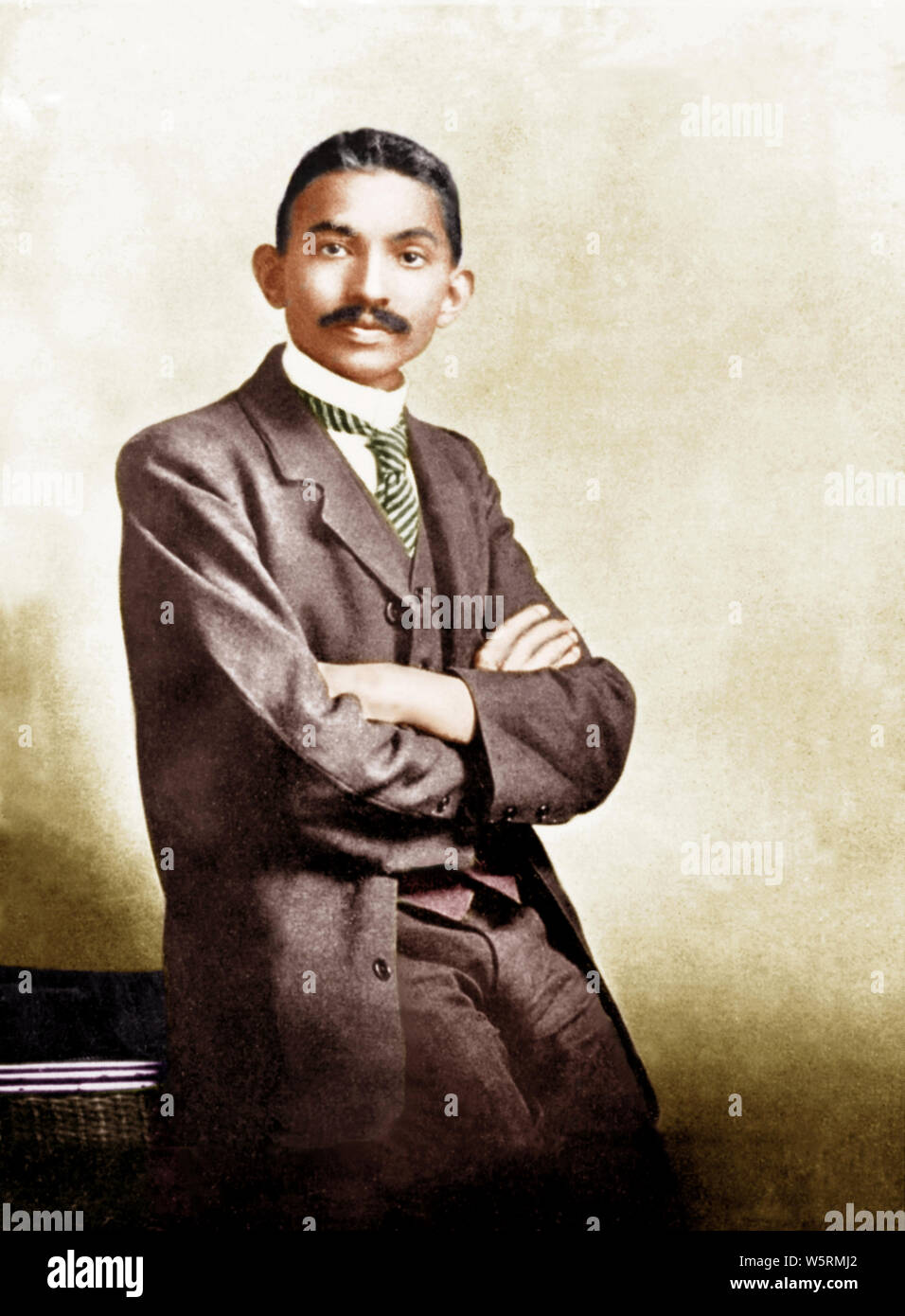
Early Life and Education
Mohandas Karamchand Gandhi was born on October 2, 1869, in Porbandar, a coastal town in present-day Gujarat, India. Raised in a religious and disciplined household, Gandhi was deeply influenced by Hinduism, Jainism, and moral values such as nonviolence and truth.
At age 19, he traveled to London to study law. After becoming a barrister, he moved to South Africa in 1893, where he faced racial discrimination and began to develop his ideas on civil rights and passive resistance.
Struggles in South Africa
Gandhi spent 21 years in South Africa, fighting for the rights of the Indian community. During this time, he formulated his method of Satyagraha—a form of nonviolent resistance against injustice. His successful campaigns in South Africa earned him respect and recognition.
Return to India and Freedom Movement
Gandhi returned to India in 1915 and soon became a key figure in the Indian freedom struggle. He joined the Indian National Congress and led nationwide movements against British rule, including:
-
Non-Cooperation Movement (1920–22)
-
Salt March / Dandi March (1930) – to protest the British salt tax
-
Quit India Movement (1942) – demanding immediate British withdrawal
His emphasis on nonviolence, self-reliance, rural development, and swadeshi (using Indian goods) became central to the independence movement.
Philosophy and Beliefs
Gandhi's philosophy was deeply rooted in truth (Satya), nonviolence (Ahimsa), and self-discipline. He believed in simple living, wearing khadi (homespun cloth), and promoting harmony among Hindus, Muslims, and other communities.
He also worked to eradicate untouchability and called the oppressed castes Harijans (children of God).
Partition and Assassination
India gained independence on August 15, 1947, but the country was divided into India and Pakistan, leading to communal riots and mass displacement. Gandhi was deeply pained by the violence.
On January 30, 1948, he was assassinated in New Delhi by Nathuram Godse, a Hindu extremist who opposed Gandhi’s efforts to reconcile Hindus and Muslims.
Legacy
Mahatma Gandhi’s life and teachings continue to inspire millions across the world. Leaders like Martin Luther King Jr., Nelson Mandela, and Barack Obama have acknowledged Gandhi's influence on their work.
Gandhi is officially honored as the "Father of the Nation" in India, and his birthday, October 2, is celebrated as Gandhi Jayanti and also observed as International Day of Nonviolence by the United Nations.
Conclusion:
Mahatma Gandhi proved that one man’s courage, moral strength, and nonviolent methods could challenge and change the mightiest empire. His legacy is a powerful reminder that peace, truth, and love are stronger than hate and violence.

You must be logged in to post a comment.